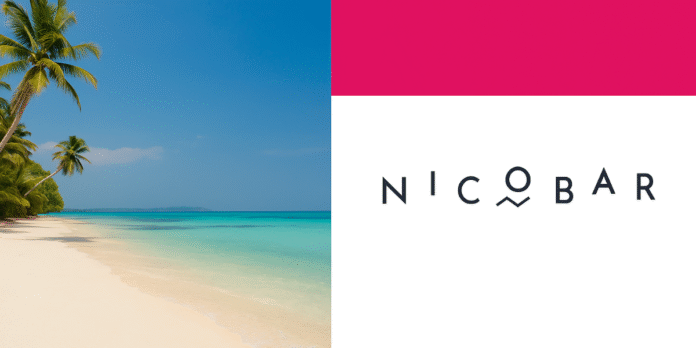Sri Vijaya Puram: A member of the Nicobar Tribal Council has raised serious concerns over the commercial use of the Nicobar Islands’ name by a mainland lifestyle brand, calling it a case of appropriation devoid of community representation or consent.
“As a member of the Tribal Council and a Nicobarese myself, neither I nor anyone in our community is aware of any such brand,” said Rashid, referring to the Delhi-based label Nicobar. “A genuine effort to make the brand inclusive could have gone a long way in making us feel seen and valued.”
The remarks have stirred fresh debate over the ethics of cultural branding, especially when it involves marginalized or geographically isolated communities. Founded in 2016 by Simran Lal and Raul Rai, the Nicobar brand positions itself as a purveyor of “modern Indian lifestyle” products, ranging from clothing and accessories to homeware, anchored in a design aesthetic shaped by “island life.”
From its brand imagery to product styling, Nicobar draws liberally from tropical minimalism: soft hues, ocean-inspired motifs, breezy natural fabrics like cotton and linen. Its logo closely resembles the outline of the Nicobar archipelago. But according to multiple local voices, the association ends there. The brand reportedly has no operational, social, or cultural ties with the Nicobar Islands or its indigenous residents.
The Nicobar Islands, part of the Andaman and Nicobar Union Territory, are home to the Nicobarese, one of India’s officially recognized tribal communities, with a distinct language, matrilineal social structure, and strong traditions of land stewardship. Rashid’s comments underscore a deeper frustration over what he describes as an “erasure through branding,” where names and symbols from the periphery are turned into marketable lifestyle codes, while the actual people and histories they represent are left out of the narrative.
The incident has drawn parallels to the recent controversy surrounding Italian luxury house Prada, which featured a sandal design resembling the Kolhapuri chappal in its Spring/Summer 2026 collection. That episode sparked outrage among Indian artisans and led to a Public Interest Litigation in the Bombay High Court demanding compensation. Unlike the Kolhapuris, which are protected under India’s Geographical Indications (GI) Act, “Nicobar” has no such legal protection, making the case more complex but no less emotionally charged.
Cultural scholars say the absence of formal protections around place-names makes it easier for brands to operate in the grey zones of identity commodification. “The name functions as branding, not belonging,” said a cultural anthropologist who has worked in the Nicobar Islands. “It’s part of a broader trend where identity markers, geography, culture, language are extracted for aesthetic capital, but the communities from which they’re drawn remain invisible or uninvolved.”
Nicobar, the brand, has previously stated that its design inspiration comes from the Indian Ocean and the Spice Route, with a focus on “slow living” and tropical serenity. But there is little evidence of active engagement with islanders, no mention of sourcing from the islands, hiring local artisans, or even acknowledgment of the region’s cultural or political context. Critics argue that this kind of aesthetic distancing, where a brand borrows the idea of a place but not its people, sets a troubling precedent.
“It’s not just about naming,” said an academic observer based in Delhi. “It’s about the asymmetry of power, where those with access to capital and platforms can appropriate, repackage, and profit from identities that others have fought to preserve.”
The Indian government has, in recent years, stepped up efforts to support tribal livelihoods and protect traditional knowledge, including through GI tags, tribal welfare programs, and the Tribal Co-operative Marketing Federation (TRIFED). However, symbolic appropriation through branding remains a legal and policy blind spot.
The Nicobar Tribal Council has not issued an official legal notice, but Rashid confirmed that the matter was raised in an internal meeting and may be taken up with higher authorities. “This is not about banning a brand,” he clarified. “It’s about acknowledging that names carry histories, and when you borrow them, you should do so with respect.”
For now, the Delhi-based company continues its operations with no reported response to the concerns raised.





